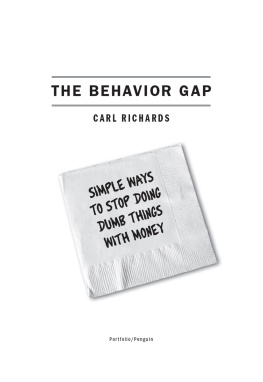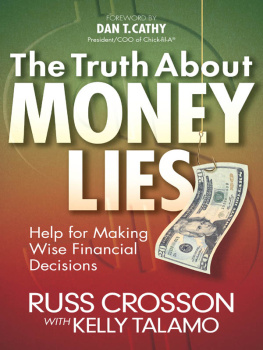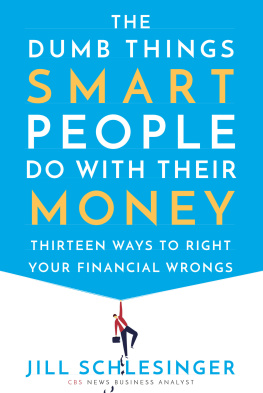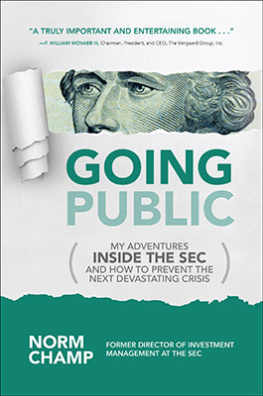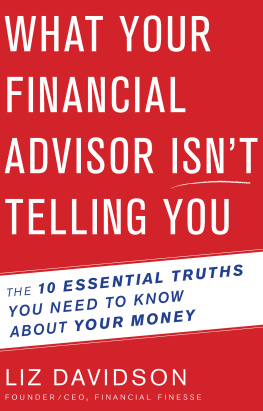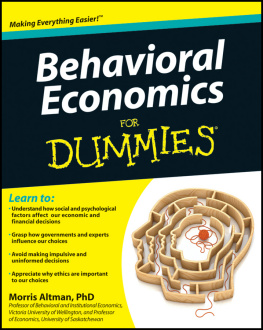Carl Richards - The Behavior Gap: Simple Ways to Stop Doing Dumb Things with Money
Here you can read online Carl Richards - The Behavior Gap: Simple Ways to Stop Doing Dumb Things with Money full text of the book (entire story) in english for free. Download pdf and epub, get meaning, cover and reviews about this ebook. year: 2012, publisher: Portfolio Hardcover, genre: Romance novel. Description of the work, (preface) as well as reviews are available. Best literature library LitArk.com created for fans of good reading and offers a wide selection of genres:
Romance novel
Science fiction
Adventure
Detective
Science
History
Home and family
Prose
Art
Politics
Computer
Non-fiction
Religion
Business
Children
Humor
Choose a favorite category and find really read worthwhile books. Enjoy immersion in the world of imagination, feel the emotions of the characters or learn something new for yourself, make an fascinating discovery.
- Book:The Behavior Gap: Simple Ways to Stop Doing Dumb Things with Money
- Author:
- Publisher:Portfolio Hardcover
- Genre:
- Year:2012
- Rating:5 / 5
- Favourites:Add to favourites
- Your mark:
The Behavior Gap: Simple Ways to Stop Doing Dumb Things with Money: summary, description and annotation
We offer to read an annotation, description, summary or preface (depends on what the author of the book "The Behavior Gap: Simple Ways to Stop Doing Dumb Things with Money" wrote himself). If you haven't found the necessary information about the book — write in the comments, we will try to find it.
Its not that were dumb. Were wired to avoid pain and pursue pleasure and security. It feels right to sell when everyone around us is scared and buy when everyone feels great. It may feel right-but its not rational.
-From The Behavior Gap
Why do we lose money? Its easy to blame the economy or the financial markets-but the real trouble lies in the decisions we make.
As a financial planner, Carl Richards grew frustrated watching people he cared about make the same mistakes over and over. They were letting emotion get in the way of smart financial decisions. He named this phenomenon-the distance between what we should do and what we actually do-the behavior gap. Using simple drawings to explain the gap, he found that once people understood it, they started doing much better.
Richardss way with words and images has attracted a loyal following to his blog posts for The New York Times, appearances on National Public Radio, and his columns and lectures. His book will teach you how to rethink all kinds of situations where your perfectly natural instincts (for safety or success) can cost you money and peace of mind.
Hell help you to:
- avoid the tendency to buy high and sell low;
- avoid the pitfalls of generic financial advice;
- invest all of your assets-time and energy as well as savings-more wisely;
- quit spending money and time on things that dont matter;
- identify your real financial goals;
- start meaningful conversations about money;
- simplify your financial life;
- stop losing money!
Its never too late to make a fresh financial start. As Richards writes: Weve all made mistakes, but now its time to give yourself permission to review those mistakes, identify your personal behavior gaps, and make a plan to avoid them in the future. The goal isnt to make the perfect decision about money every time, but to do the best we can and move forward. Most of the time, thats enough.
Carl Richards: author's other books
Who wrote The Behavior Gap: Simple Ways to Stop Doing Dumb Things with Money? Find out the surname, the name of the author of the book and a list of all author's works by series.

